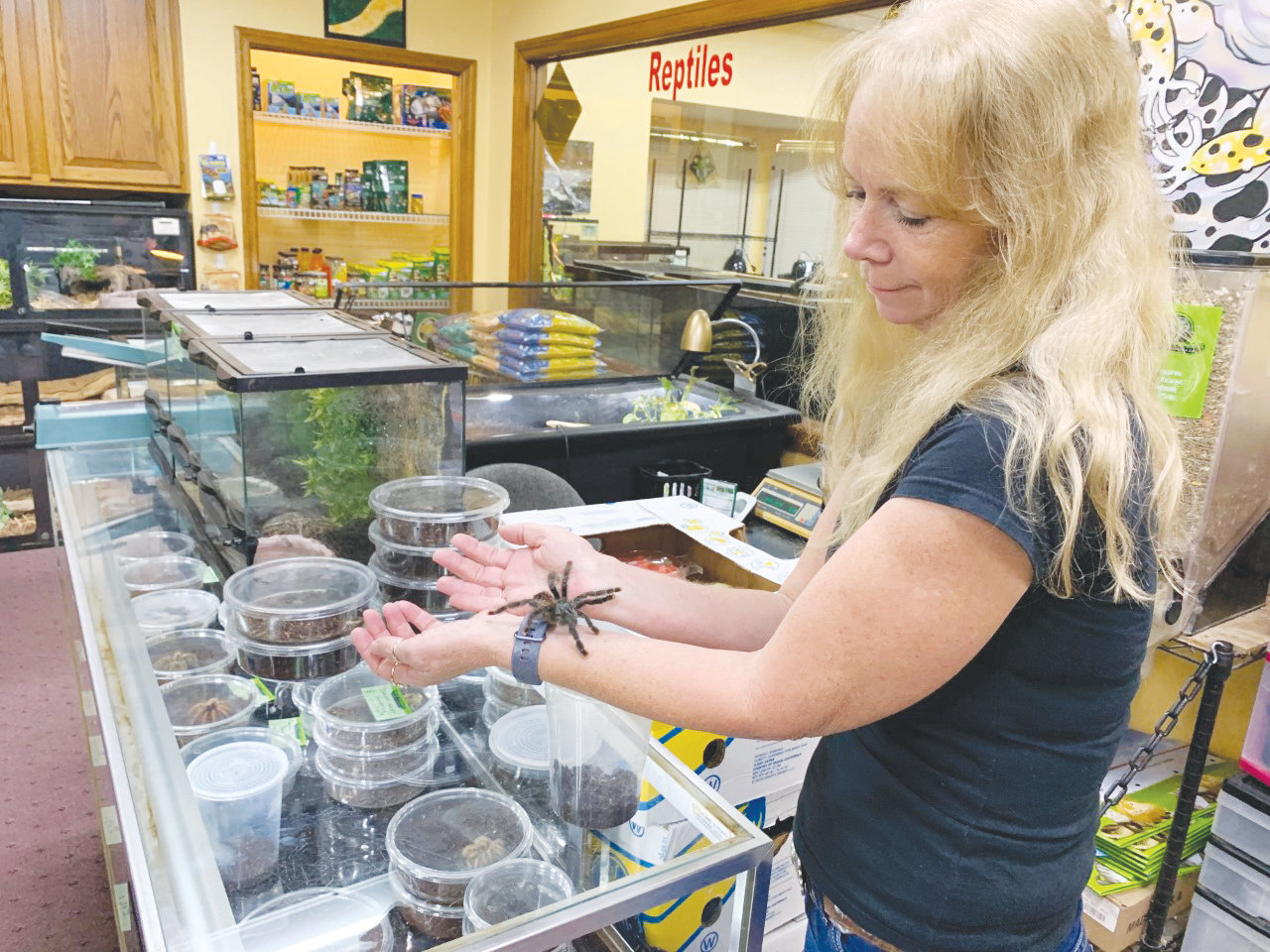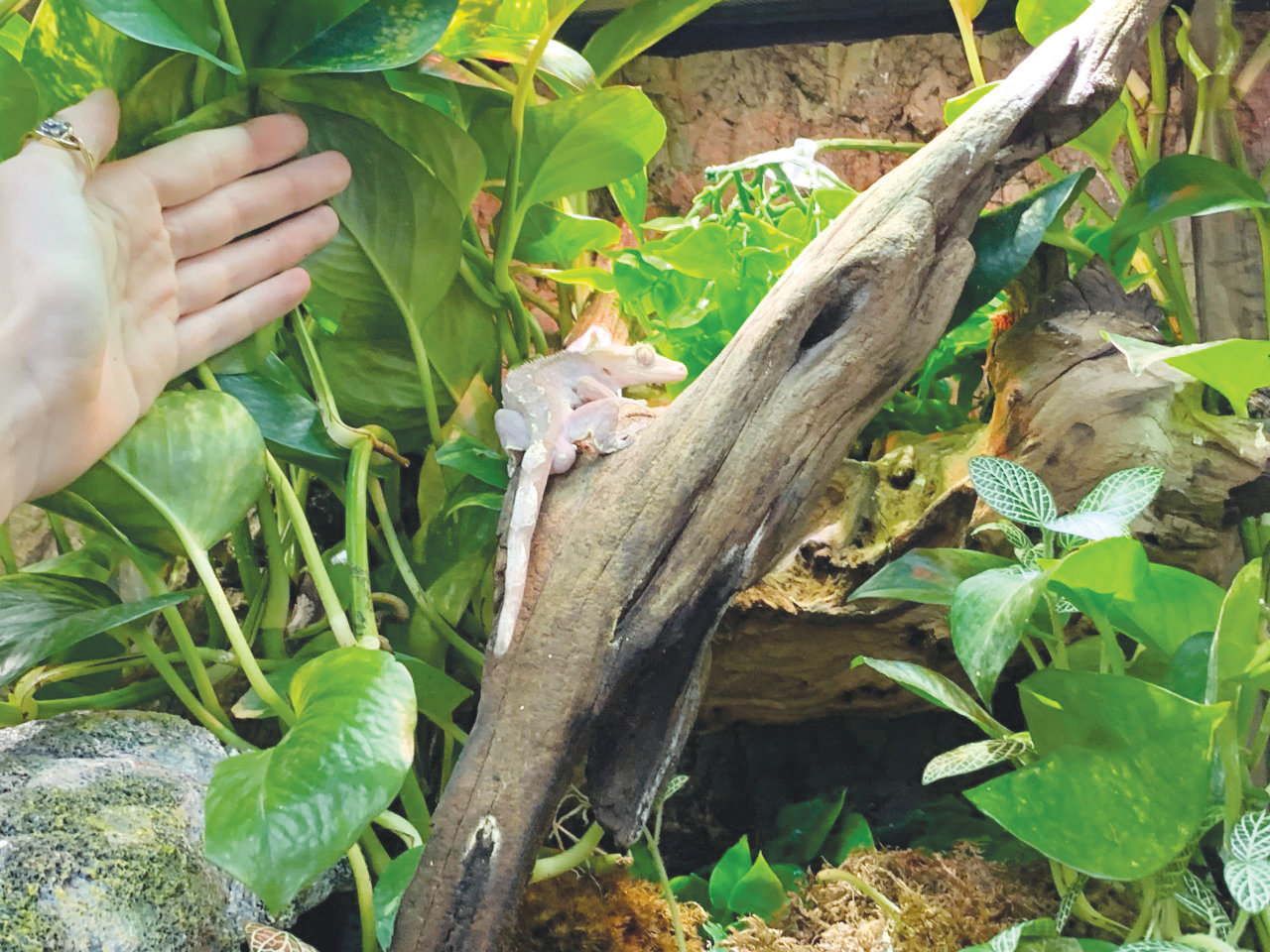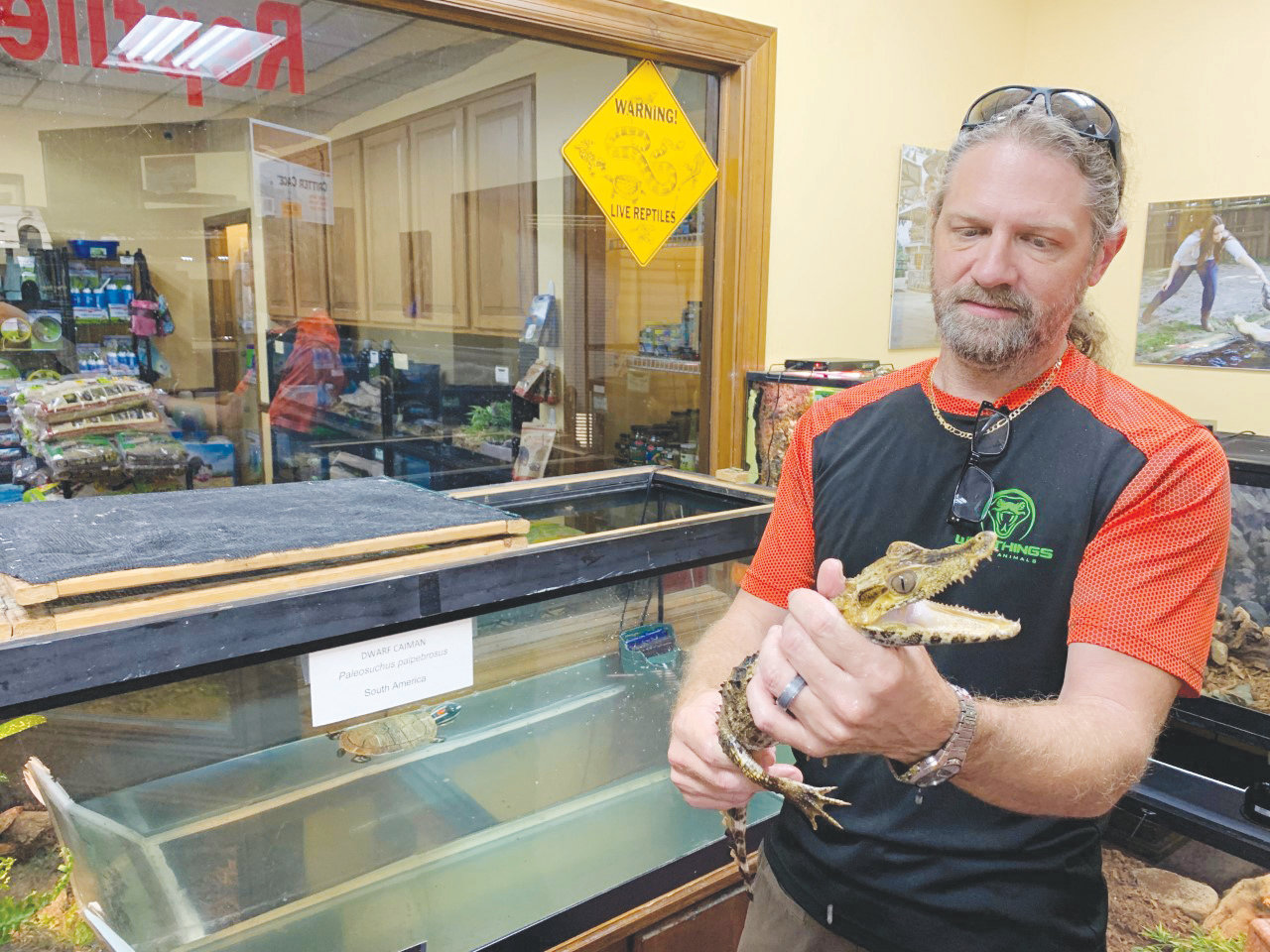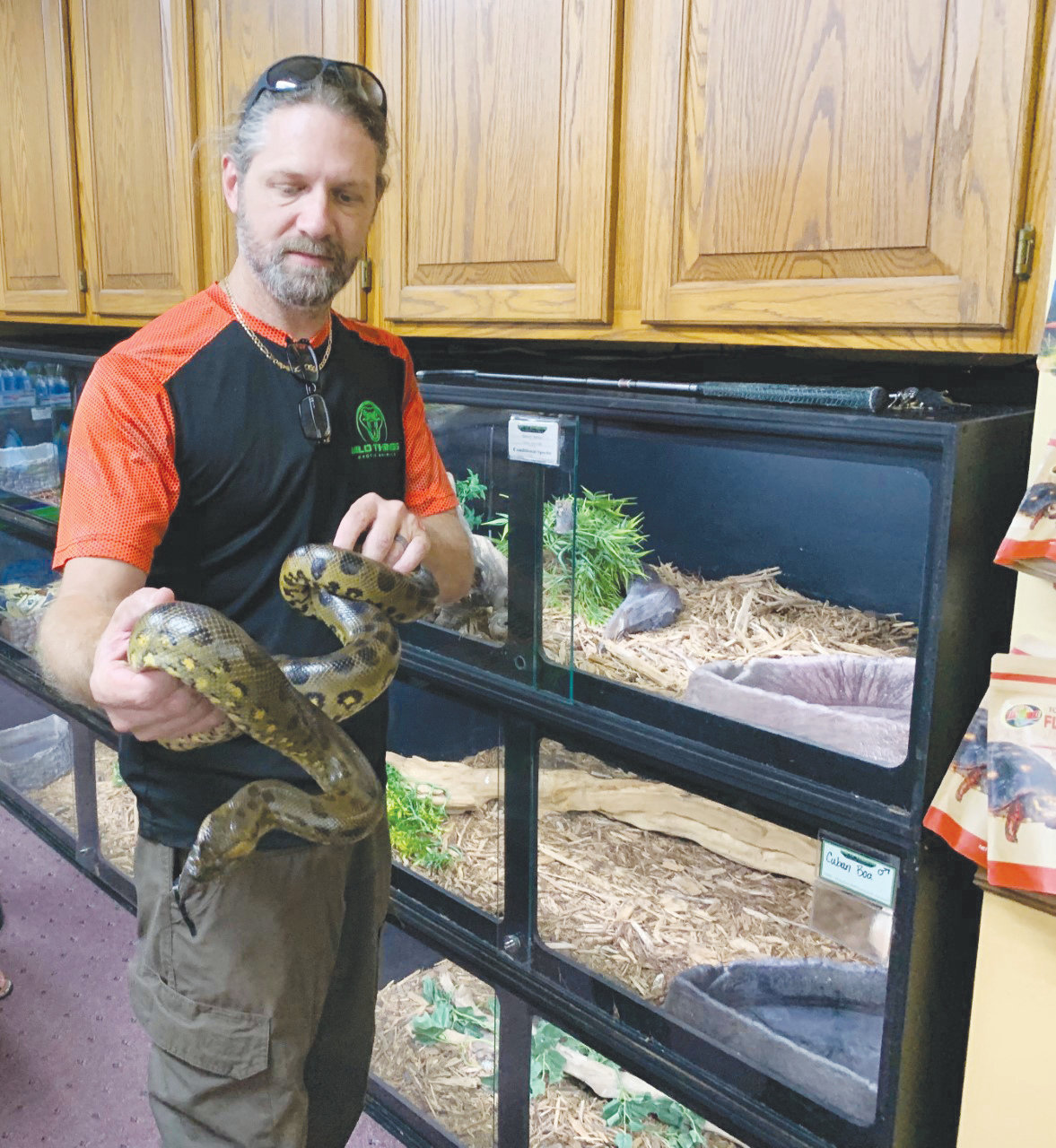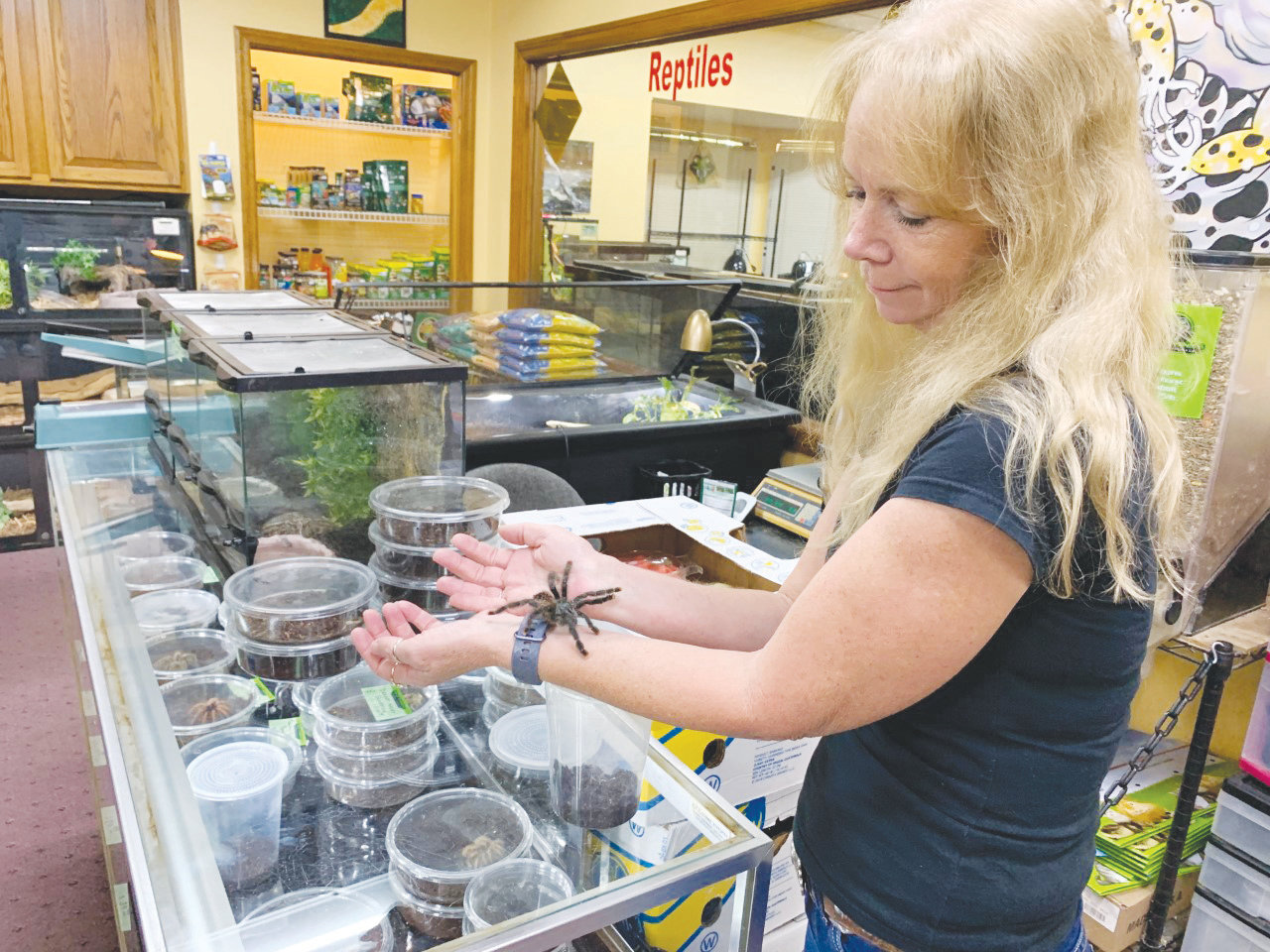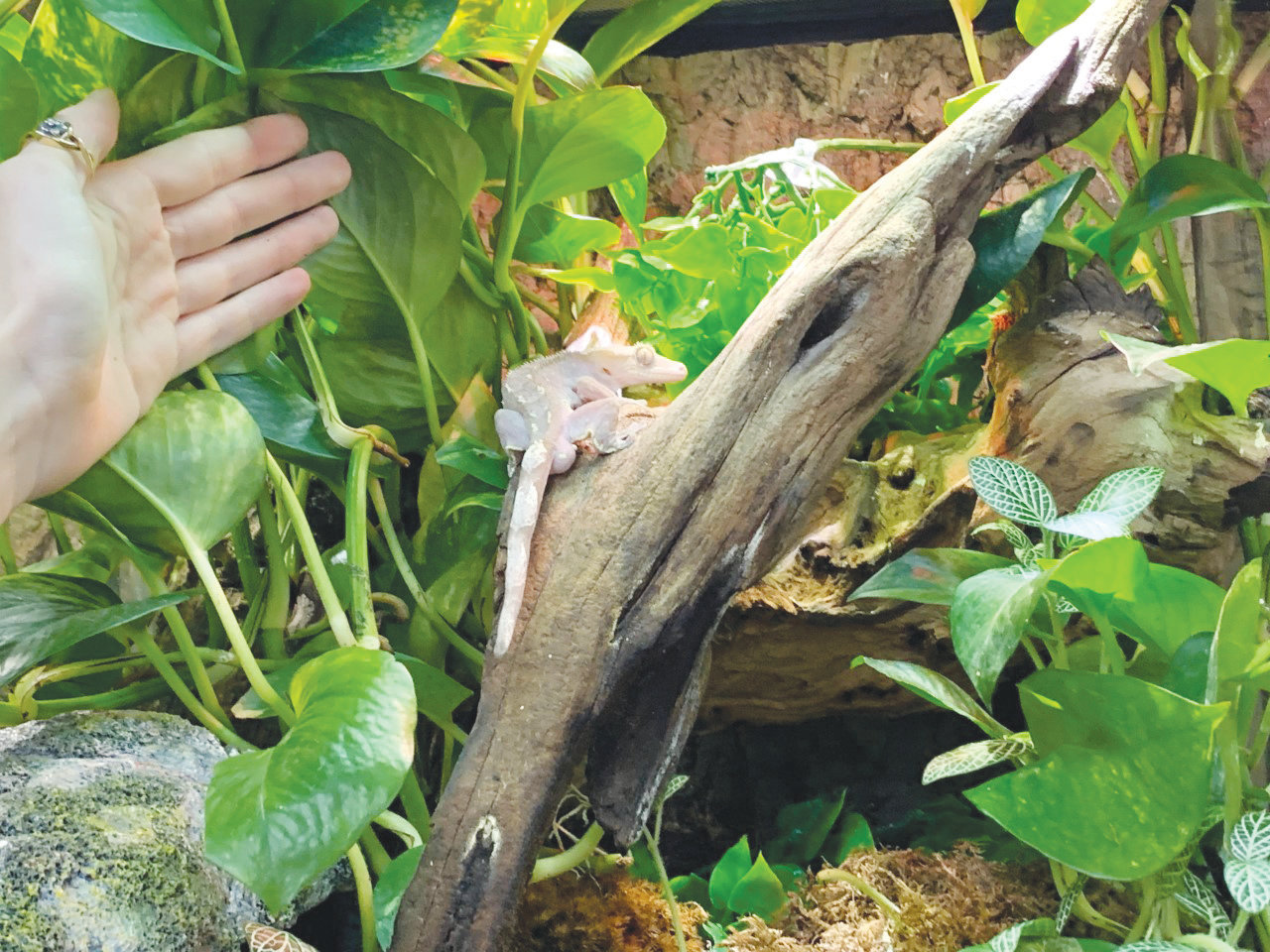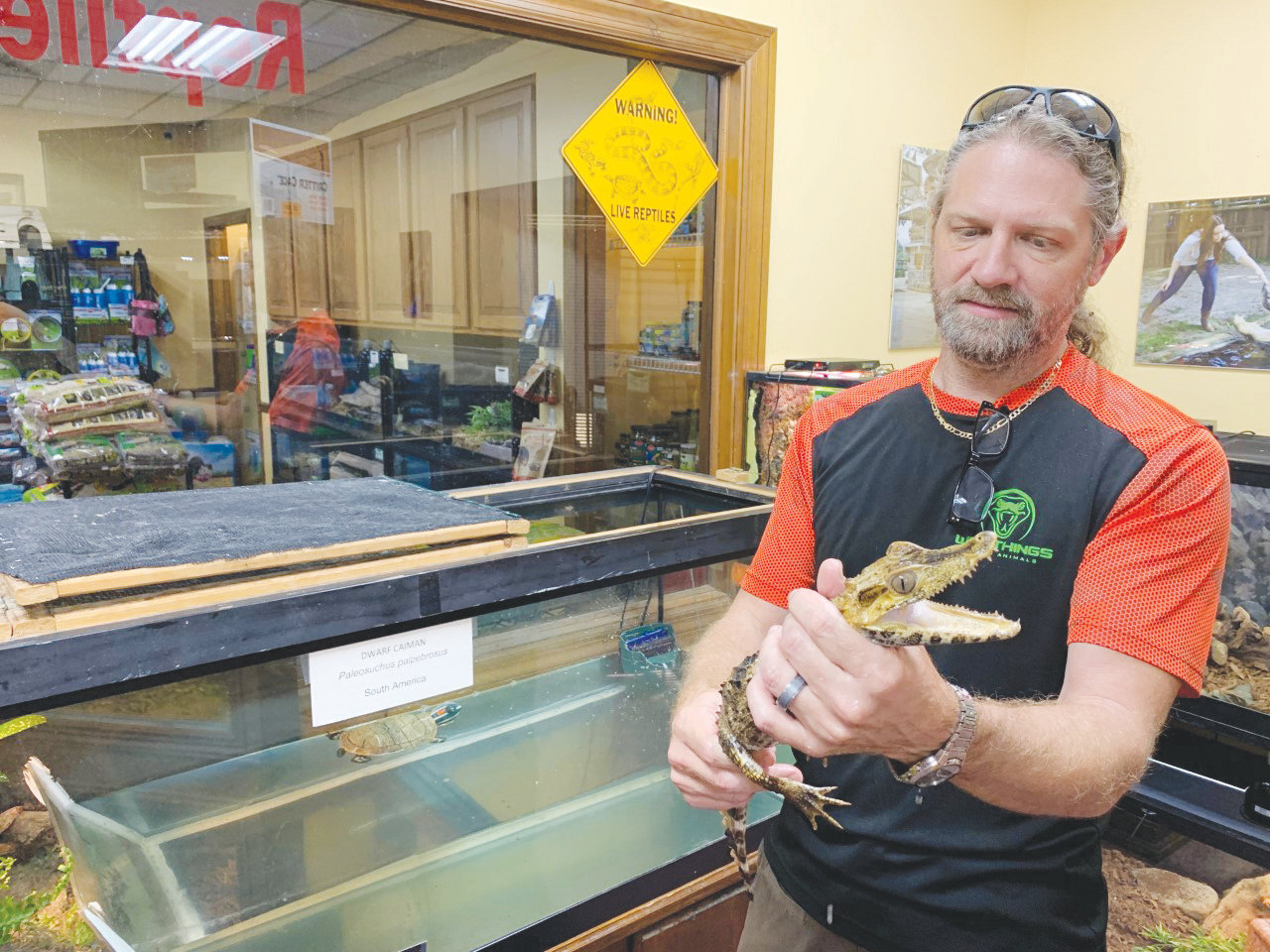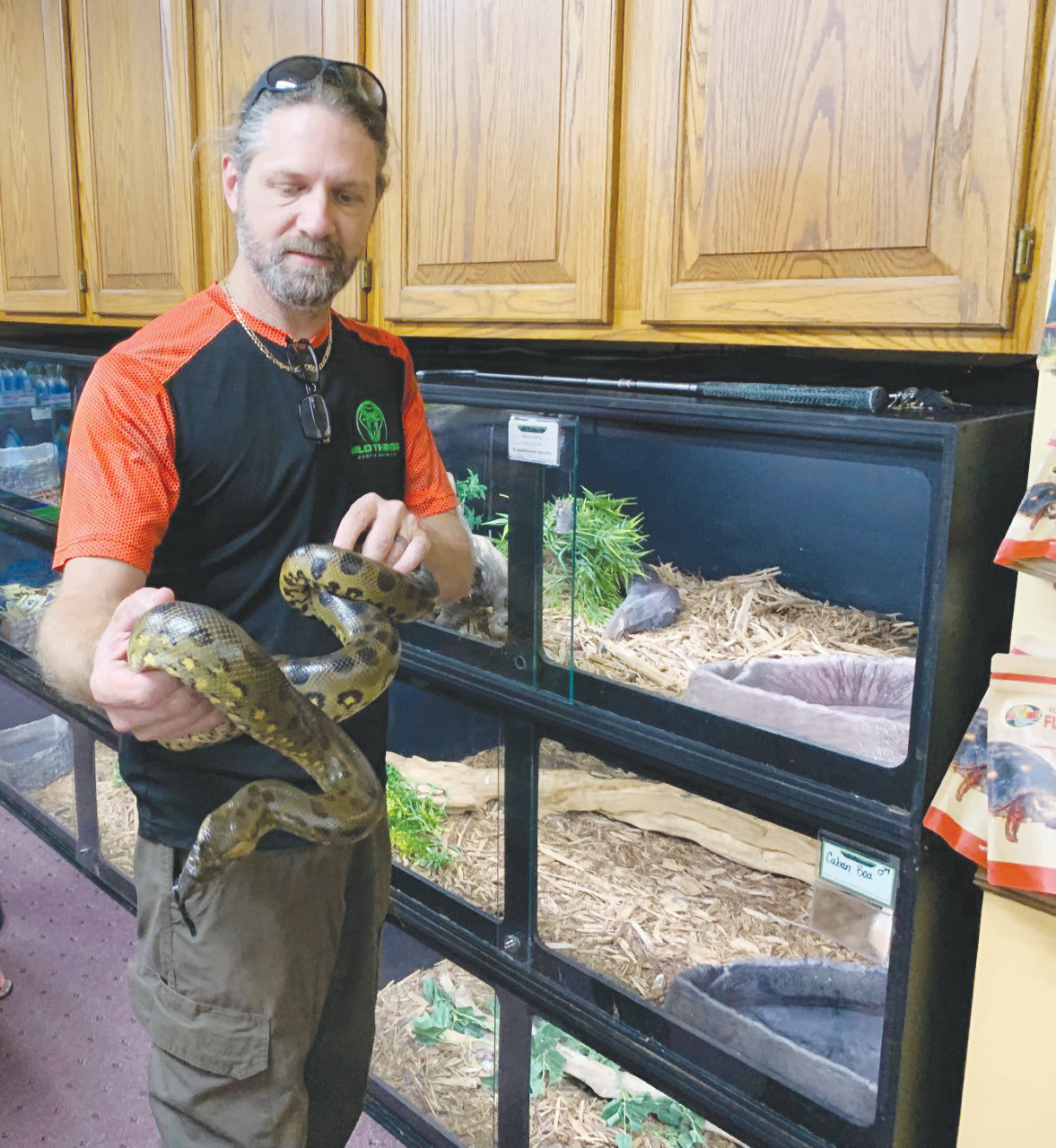Exotic animals gone wild
Pet store specializes in animals for zoos, collectors
MIDDLEBURG – Wild Things Exotic Animals has an assortment of tanks, tubs and cages.
The first room on the left is reserved for mammals like ferrets, degu and sugar gliders. Tarantulas and geckos …
This item is available in full to subscribers.
Attention subscribers
To continue reading, you will need to either log in to your subscriber account, or purchase a new subscription.
If you are a current print subscriber, you can set up a free website account and connect your subscription to it by clicking here.
If you are a digital subscriber with an active, online-only subscription then you already have an account here. Just reset your password if you've not yet logged in to your account on this new site.
Otherwise, click here to view your options for subscribing.
Please log in to continueDon't have an ID?Print subscribersIf you're a print subscriber, but do not yet have an online account, click here to create one. Non-subscribersClick here to see your options for subscribing. Single day passYou also have the option of purchasing 24 hours of access, for $1.00. Click here to purchase a single day pass. |
Exotic animals gone wild
Pet store specializes in animals for zoos, collectors
MIDDLEBURG – Wild Things Exotic Animals has an assortment of tanks, tubs and cages.
The first room on the left is reserved for mammals like ferrets, degu and sugar gliders. Tarantulas and geckos are on different sides of the counter, where customers can buy mice and crickets for their animals. The two back rooms hold lizards, toads, tortoises and a small caiman crocodile. You are usually in the same room as dozens of snakes.
The back room is a nursery and it holds the future breeders and “VIPs,” said owner Matt Crews.
Matt Crews said he was fascinated with playing in the woods and nature as a child growing up in rural Clay County. He didn't want the politics of working at a zoo, so he gathered the experience to breed animals and sell to zoos around the world.
He owns Wild Things with his wife Paula Crews. They produce their own animals, and at home have 200 crepuscular snakes, 200-250 ball pythons, 10-15 crocodiles and 20 tortoises, as well as some venomous snakes.
The pair, with an extensive experience in reptiles and amphibians, said owning an exotic animal has moved beyond stereotypes. Matt Crews said it’s not on the fringes anymore like tattoos.
About 4.7 million of U.S. households have a reptile as a pet according to the American Pet Products Association's 2017-2018 National Pet Owners Survey. The same survey estimated there were 9.4 million reptiles as pets in the country.
“Once you get over that shock of, ‘Oh my God, that’s a tarantula. Oh my God, that’s a snake,’ you open your eyes to it and say, ‘That’s fascinating and interesting,’” Matt Crews said.
Paula Crews highlighted the educational side of the store. She lets a boy hold a tarantula and tells another about a bearded dragon that hurls itself at the glass.
“It’s like the puppy of the reptile world,” she said. “It just wants to play.”
Matt Crews held out a feisty dwarf caiman crocodile and customers asked questions.
“Most of the species of caiman stay relatively small,” Matt Crews said. “It’s only going to reach about four and a half or five feet in length.”
Two of the Crews’ geckos produced an axanthic offspring, meaning it lacked a red pigment and came out silver. The Crews had to prove it’s a genetic trait and not an anomaly.
“Those parents produced several (silver offspring) over the next two years. We raise them and breed those back together,” Matt Crews said. “If those babies hatch axanthic as well, then we have proven that’s not an anomaly.”
Wild Things moved to its current location at 2500 Blanding Blvd. in 2010. The Crews have personally trained the staff and the store offers advice on Facebook. The Crews’ animals have been featured on the Discovery Channel, Animal Planet and National Geographic for specials and stock footage.
“You can get a gecko anywhere, but we want the experience to be pleasant,” Paula Crews said. “We want people to leave knowing what they’ve gotten themselves into.”
Seven days a week staff cleans and feeds the hundreds of animals. Matt Crews said Wild Things went through 30,000 crickets a week.
“The biggest thing with this big of a selection of animals is the care involved for the animals. Every animal needs water, food, they need to be cleaned. It’s a tremendous amount of work,” Matt Crews said. “If you had a radio store, if you came in, you would just dust off the shelves and turn on the lights.”


